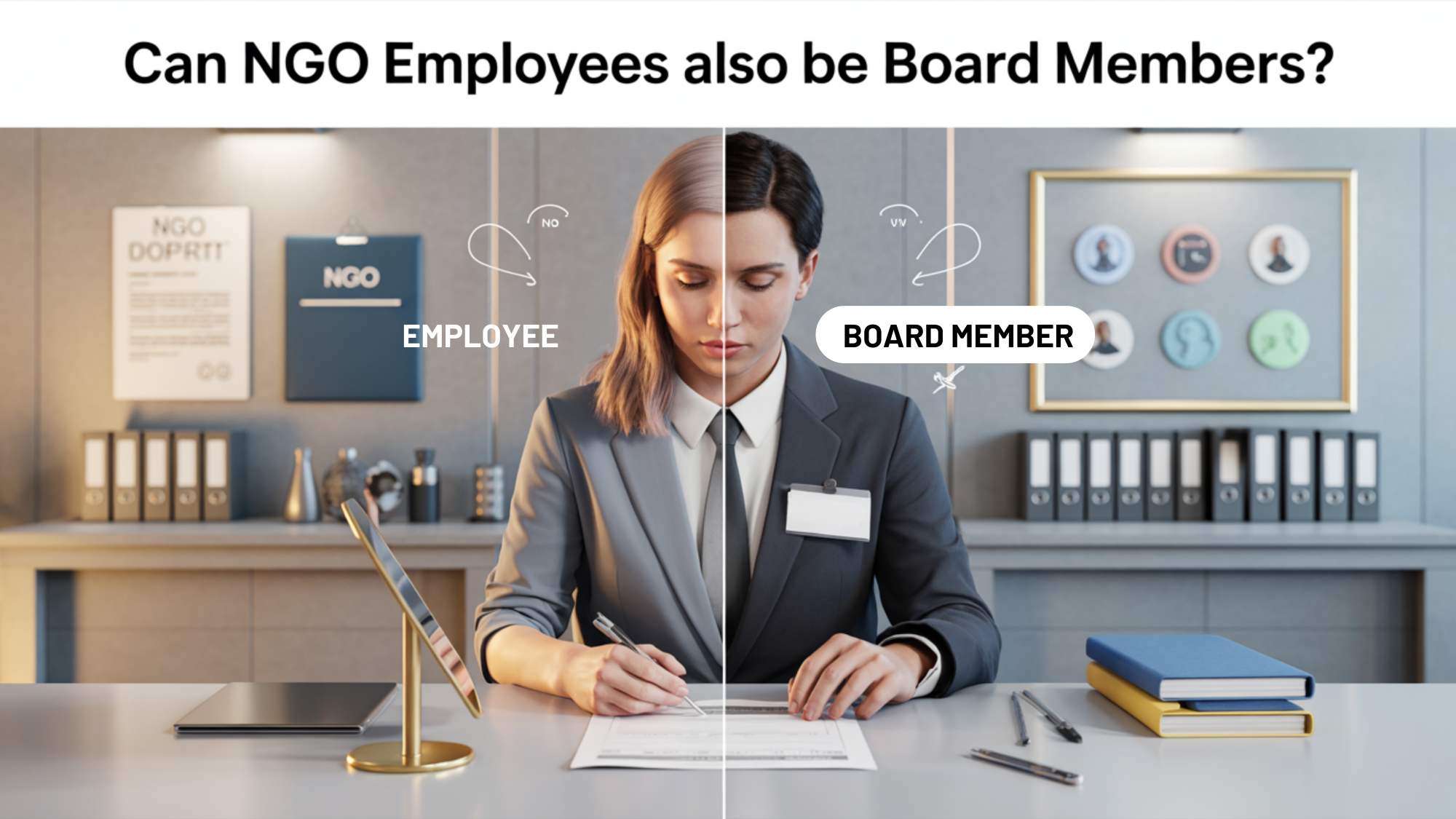
Whether NGO Employees Can Also Be Board Members–Governance Risks
The dual role of employees as board members in NGOs raises significant governance concerns, including conflicts of interest, blurred lines of authority, and compromised oversight.
Legal Provisions and Bare Act Analysis
The Indian Trusts Act, 1882, does not explicitly prohibit employees from serving as trustees, but Section 10 requires trustees to act impartially, which may be compromised if an employee-trustee influences decisions affecting their employment. The Societies Registration Act, 1860, allows governing body members to be chosen as per the society’s bylaws, but these must align with principles of good governance.
The Income Tax Act, 1961, Section 13(1)(c), prohibits private benefits to persons in control of a trust, including employees serving as trustees. The Bombay Public Trusts Act, 1950, Section 20, emphasizes that trustees must prioritize the trust’s objectives over personal interests, which can be challenging for employee-trustees.
Judicial Interpretations and Case Law
In Charity Commissioner v. Lok Seva Trust (2016), the Bombay High Court ruled that an employee serving as a trustee must recuse themselves from decisions involving their salary or employment terms to avoid conflicts of interest. The Zthe need for clear separation between operational and governance roles.
In Income Tax Officer v. Shri Ram Education Trust (2020), the Income Tax Appellate Tribunal revoked a trust’s tax exemption after finding that an employee trustee approved excessive remuneration for themselves, violating Section 13. This case highlighted the risks of dual roles.
Practical Implications and Examples
Consider an NGO, “Green Future,” where the program director also serves as a board member. If the director votes on their own salary increase, it creates a conflict of interest, risking regulatory scrutiny. In 2022, a Delhi-based NGO faced a penalty under the Income Tax Act when its executive director, also a board member, approved a bonus for themselves without recusal.
In contrast, an NGO in Maharashtra mitigated risks by allowing its employee trustee to participate in strategic decisions but excluding them from financial or employment-related votes. This approach ensured compliance while leveraging the employee’s expertise.
Advantages of Compliance
Separating employee and board roles:
Professional Advice
NGOs with employee-board members should:
Additional Points: Challenges and Best Practices
A key challenge is the reliance on employees for board roles in small NGOs with limited resources, which can blur governance lines. Recent trends show regulators emphasizing independent boards to enhance transparency. Best practices include establishing clear role definitions, limiting employee representation on the board, and implementing robust oversight mechanisms, such as an independent ethics committee.
Complete Guide to Form 10A and 10AB– New Compliance Framework for 12AB Registration &nbs...
EPF in India is a retirement savings scheme managed by EPFO under the Ministry of Labour and Empl...
Non-Profit Structures in India: Section 8 Companies, Trusts, Societies, and AOP/BOIs In India,...
Private trusts serve as powerful tools for asset management and wealth preservation, but understan...
How to Form a Section 8 Company: Procedure, Benefits & Pitfalls A Section 8 Company (Compa...
Foreign Travel for NGO Work: Does It Require FCRA Approval? The FCRA governs the acce...
Donations from Non-Resident Indians (NRIs) and Overseas Citizens of India (OCIs) Overvi...
Understanding Charitable Trusts in India In India, the most commonly understood form of constitut...
Understanding Societies in India: Formation, Governance, and Legal Framework Introduc...
Whether GST Should Apply to Donations Linked to Services– Controversy Around NGO Train...